by cidaut | Jul 27, 2018 | Energy
ECOS 2018 is the 31st International Conference on Efficiency, Cost, Optimization, Simulation and Environmental Impact of Energy Systems which has been taken place in Guimarães between the 18th and the 21st of June.
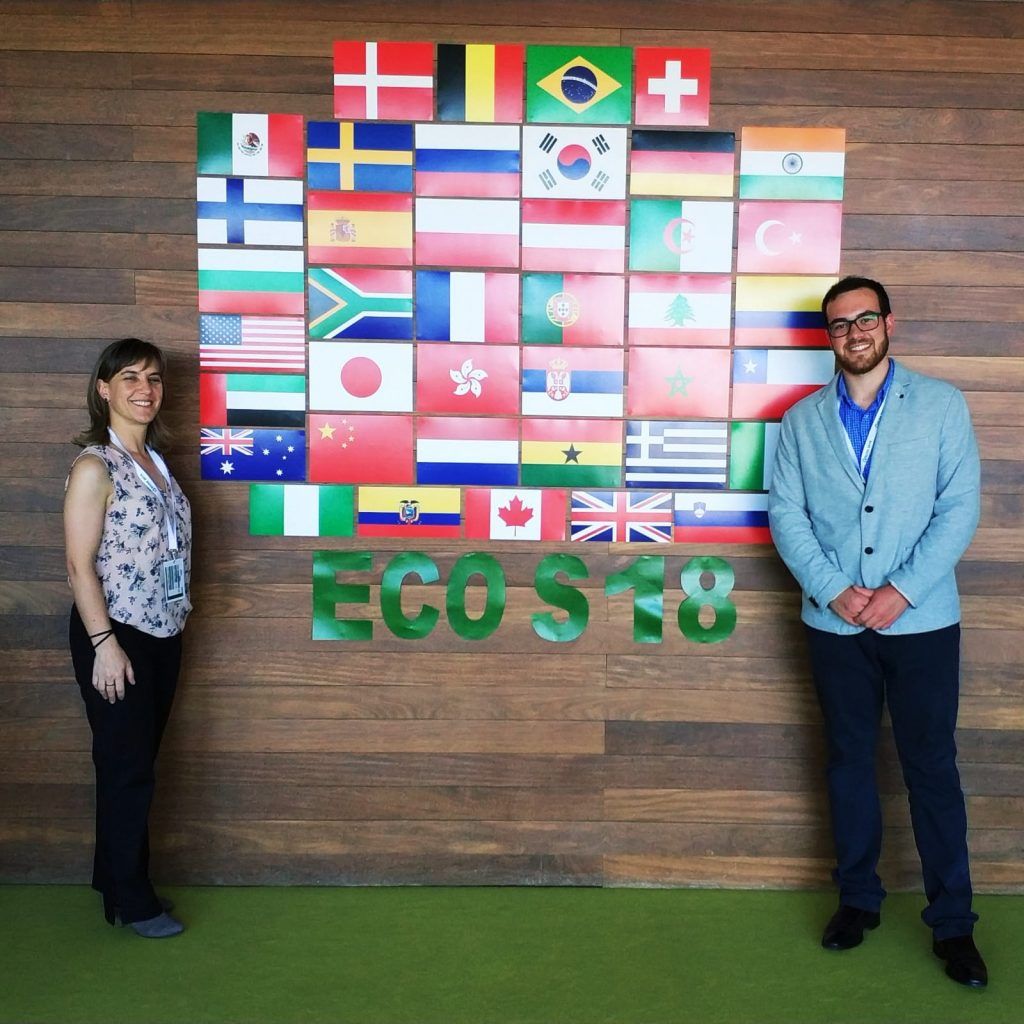
Main topics discussed during the conference have been exergy as a process optimization, ORC, thermal recovery, fuel cells, energy storage, renewable energy, combustion, etc.
Under VULKANO Project CIDAUT’s paper entitled “Application of the CFD simulation to the evaluation of natural gas replacement by syngas in burners of the ceramic sector” has been presented.This paper gathers a wide evaluation of the alternatives in the reduction of fossil fuel consumption, such as natural gas, promoting its substitution by an alternative fuel (Co-firing). A revision of the types of syngas with potential for use has been carried out, as well as the evaluation of the physical properties of the mixtures from the combustion operation point of view. The feasibility study has taken into consideration parameters such as the low heat value, the Woobe index, adiabatic flame temperature, air preheating temperature, total flue flow and laminar flame velocity. The modifications for SG co-firing have been evaluated using CFD simulations to establish the proper design of the mix zone to ensure the mixture between the air, syngas and natural gas. Moreover, despite the initial objective was to replace 40% of natural gas energy by syngas in an industrial ceramic furnace, new dedicated burners for 100% of syngas substitution have been designed and simulated.
The Institute of Power Engineering (IEn), as partner of CIDAUT in VULKANO, also presented a paper entitled “CFD analysis of natural gas substitution by syngas in industrial furnaces” which evaluated the integration of new burners in the whole furnace system and simulating the real heating process in steel sector.
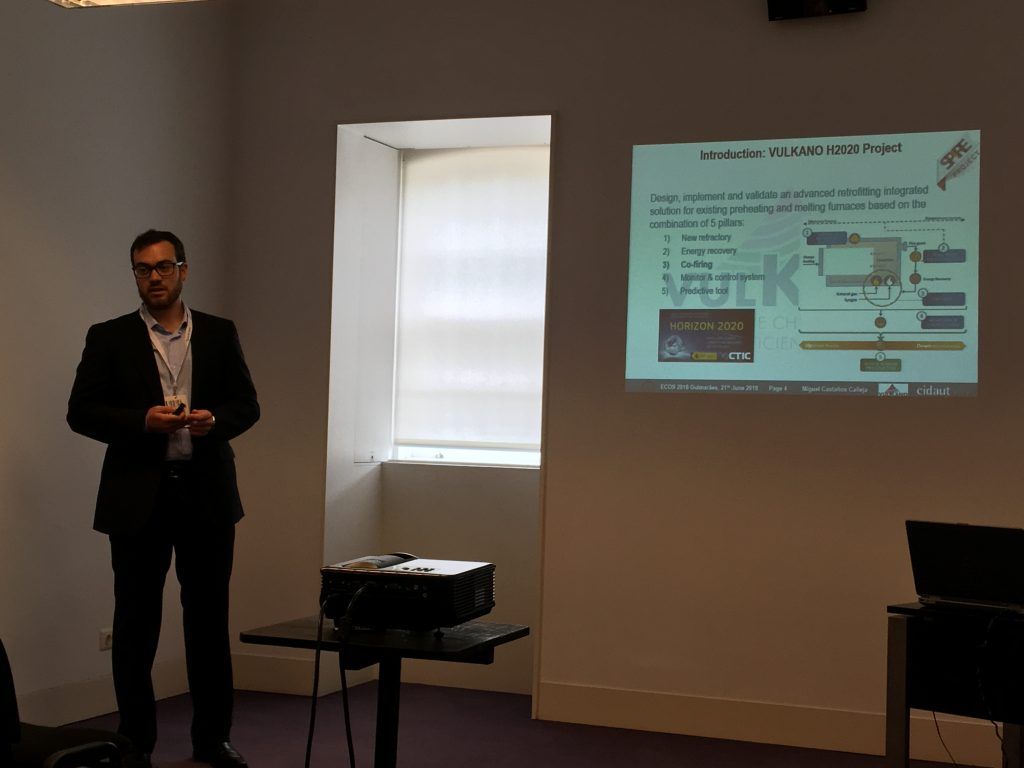
Furthermore, the VALORCOMP project partners have also been involved attending to different technical presentations in topics related with biomass, energy use and combustion, gasification, reaction engineering and CO2 mitigation.
More info about the conference in: http://www.ecos2018.org/
More info about VULKANO project: http://www.vulkano-h2020.eu/
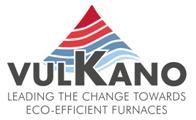
Keywords: VULKANO, ECOS2018, CFD, Burner, VALORCOMP
by cidaut | Jul 27, 2018 | Energy
This time, the headquarters of the follow-up meeting of Valorcomp project was the Polytechnic Institute of Braganza, institution that hosted the meeting on June 12. Representatives of all the partners attended the meeting with the presence of the Polytechnic Institute of Bragança (IPB, Principal Beneficiary), CIDAUT Foundation, University of Valladolid (UVa), Resíduos do Nordeste and Nertatec.
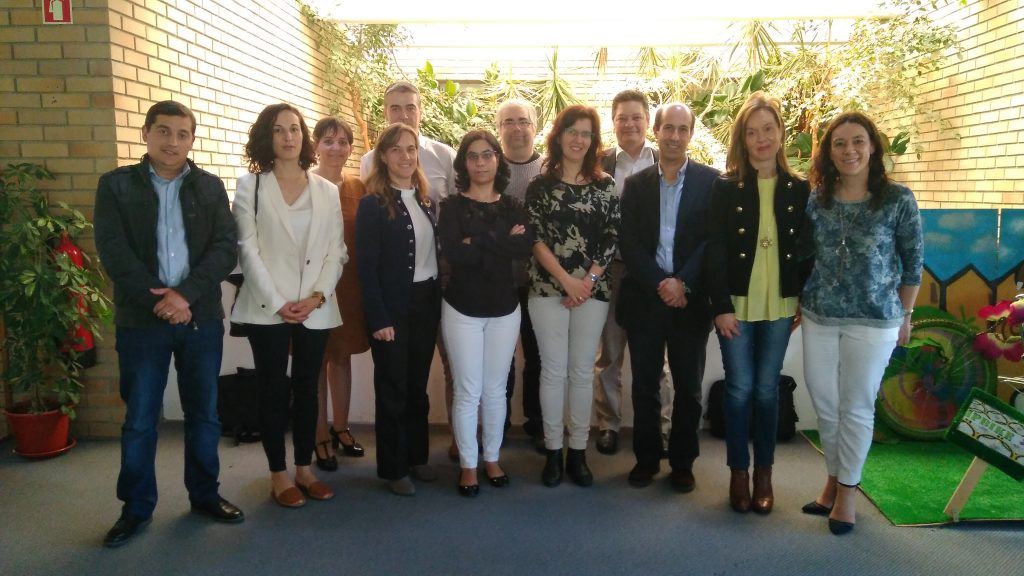
The main objective was the technical review of the progress in those ongoing activities, as well as communication and project coordination activities.
The review started with CIDAUT´s presentation of the densified compost results. The different tests carried out and satisfactory final results were shown. The use of a mould specially designed for the densification process of refining and rejection of stabilized biowaste samples was highlighted. IPB continued with the progress in the synthesis of adsorbent materials and the need to modify the experimental installation to achieve a better performance. Subsequently, IPB presented the advances in obtaining catalyst materials and the clear problem of excessive loss of material. IPB was also in charge of exposing the results in obtaining ecological bricks, the problems associated with the odor of compost in the bricks and the results of fire resistance tests. Finally, the UVa showed the results of extraction of nutrients for the agronomic use of the compost by means of extraction techniques using water, KOH and HNO3 and evaluating the organic carbon, nitrogen and phosphorus recovered. Within this task, IPB concluded with the presentation of the work done in the use of leached water and the need to reduce heterogeneity, alkalinity and certain metals such as Cr and Cd.
Once the technical review of the tasks was completed, a review of the most relevant issues of project coordination and the launch of the COOPERA 2020 coordination platform was made. The last part of the meeting was about dissemination activities of the results. It is important to note the presence of VALORCOMP in the 4th International Congress on Water, Waste and Energy Management (EWWM) to be held in Madrid from 18-20 July 2018 and the 15th European Workshop on Lignocellulosics and Pulp (EWLP 2018) which will take place in Aveiro from June 26 to 29, 2018.
To conclude, all the partners were summoned to an upcoming meeting in September at the facilities of Resíduos do Nordeste, and on behalf of IPB, a visit was made to their laboratories and facilities, which allowed the Spanish partners to learn more about their capabilities.
This project is co-financed by the programme of cooperation INTERREG V-A Spain-Portugal (POCTEP) 2014-2020 and will run until September 2019. Project VALORCOMP aims to contribute cooperatively to solve cross-border problems in the valorisation of waste generated in the treatment of the organic fraction of municipal solid waste.
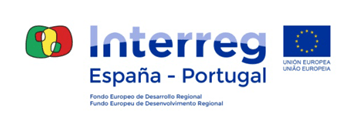 Tags: VALORCOMP, compost, residues, POCTEP
Tags: VALORCOMP, compost, residues, POCTEP
by cidaut | May 18, 2018 | Energy
On March 27, 2018 took place the fourth meeting on Circular Economy promoted by the Regional Government of Castilla y León through the Ministry of Development and Environment and the Ministry of Economy and Finance.
This time the title of the meeting was “Circular Economy and Bioeconomy: Zero waste – Waste to resource” and it focuses on the use of waste as subproducts instead of dispose them in landfills as a way to accomplish with the principles of the Circular Economy.
 José Magro González, from AENOR, during his speech about certification options.
José Magro González, from AENOR, during his speech about certification options.
During the day, legal possibilities in order to obtain an end-of-waste consideration were highlighted. The European Commission has already set down end-of-waste criteria for glass, metal and copper scrap and criteria for various other materials that are under development. This latter aspect, end-of-waste concept, is regarded as a first step toward these materials to be considered as raw materials for other processes more than as a waste that have to be managed.
Certification processes around Circular Economy were also reviewed which are an important tool for enterprises to demonstrate its actual commitment with Circular Economy.
Finally, there was a time for exchanging information about existing positive experiences on waste re-used within Castilla y León, mainly related with the agri-food sector.
by cidaut | May 18, 2018 | Energy
The European Union has approved the allocation of 10 million euro to fund the ECO-GATE project (European COrridors for natural GAs Transport Efficiency) that will involve the construction of more than 20 gas-refueling stations. These are aimed to supply vehicular natural gas in the Atlantic and Mediterranean corridors of the road network of Spain, France, Germany and Portugal.

ECO-GATE is run by a consortium of more than 20 companies from Spain (21), Portugal (3), France/ Germany (1). As natural gas operators: Gas Natural Madrid, Enagas Transporte, Dourogás Natural, Endesa Energia, Agas Siglo XXI, Galp Energia, EDP, Repsol, Gas Natural Europe, Inversora Melofe and Molgas Energía.
The following participants contribute as providers of technologies and services: Cetil Dispensing Technology, Soltel It Solutions, Fundacion Cidaut, Evarm Innovacion, Tras-Os-Montes and Alto Douro University, Imdea Energía Foundation, Audigna, Ghenova Ingeniería or Madisa and as end users: Correos , San José López and EMT Palma.
Also acting as experts in market knowledge and promotion are: Gasnam, Port Authority of Gijón, Port Authority of Huelva, University of Santiago de Compostela and Soulman Insightful Thinking.

The European ECO-GATE project is one of the most ambitious in the conventional and renewable vehicular natural gas market with the deployment of infrastructures throughout the Atlantic and Mediterranean Corridors via new technologies and innovative solutions. The main objective is to study conventional and renewable natural gas vehicle market in the whole Atlantic Corridor, its interconnection with Rhine-Danube Corridor until Heddesheim and the Spanish Mediterranean Corridor through new technologies and innovative solutions. These solutions are focused on supply logistic services, cleaner fuel composition, refueling infrastructure, vehicle and components manufacturers and operational process.
The financing of the European Union responds to the fact that the project contributes enormously to compliance with the European Directive 94/2014 and to the development of the natural gas market for mobility as an alternative fuel.
Fundacion Cidaut, as part of the technology providers, participates by contributing innovations in Adsorbent Natural Gas (ANG) solutions for CNG. This technology allows storing significantly more natural gas at lower pressures.

“The sole responsibility of this publication lies with the author. The European Union is not responsible for any use that may be made of the information contained therein.”
by cidaut | Mar 15, 2018 | Energy
On 31ST January 2018, the second VALORCOMP project meeting took place at the CIDAUT Foundation facilities in Boecillo (Valladolid). The meeting was attended by the whole consortium with representatives of all project activities.

The meeting started with a brief technical review of the activities that are being carried out in the framework of thermochemical, material and agronomic use of compost within the project. Each partner exposed the results obtained and the next actions. In a common way, the problem associated with the presence of glass and inert material was pointed out and it will be important in future activities. On behalf of the main industrial partner of the project, Resíduos do Nordeste, emphasis was placed on the concept of Biorefinery to which the waste treatment centers will migrate, as well as the concept of Circular Economy that underlies the entire VALORCOMP project.
Another the relevant point of the meeting was the presentation of the project logo, which has already been accepted by the consortium. The designed logo tries to encompass the three fields of action of exploitation of VALORCOMP project represented by the three circles, deepening in the idea of Circular Economy.
 At the same time, it was made the presentation of the project’s website which is already operational: http://www.valorcomp.ipb.pt. This website will be the showcase of dissemination where the results of the project will be published, as well as all the relevant information, news and events generated. As more content is generated, the information will be expanded, as well as expanding the dissemination channels.
At the same time, it was made the presentation of the project’s website which is already operational: http://www.valorcomp.ipb.pt. This website will be the showcase of dissemination where the results of the project will be published, as well as all the relevant information, news and events generated. As more content is generated, the information will be expanded, as well as expanding the dissemination channels.
Finally, the calendar of the next meetings was set, which will be held at the facilities of the Polytechnic Institute of Bragança and Resíduos do Nordeste in April and July 2018 respectively.
This project is co-financed by the programme of cooperation INTERREG V-A Spain-Portugal (POCTEP) 2014-2020 and will run until September 2019. Project VALORCOMP aims to contribute cooperatively to solve cross-border problems in the valorisation of waste generated in the treatment of the organic fraction of municipal solid waste.

Tags: VALORCOMP, compost, residues, POCTEP
by cidaut | Mar 15, 2018 | Energy
A new meeting was held to monitor the MOVBIO project in the facilities of the Center for Waste Valorisation (CVR) in Guimarães (Portugal) on January 18th and partners of Portugal and Spain with representatives of all project activities attended the meeting. The progress of the project in the study of the potential of pruning biomass for energy use in the north of Portugal and Castilla-León was shown. One of the purposes of the meeting was to establish the contents of the project’s website (www.movbio.eu) and the following milestones of the project aimed at preparing the final biomass potential report. The definition of case studies in which to validate the use of this biomass and the interaction with other projects related to the use of pruning such as the UP-running and BIOMASA-AP projects was also evaluated.

This meeting was completed the next day with a technical conference that included a demonstration in the field. It was possible to verify the pruning techniques of actinidia (kiwi) and of the vine, as well as its collection in the field for future energy use. Both species present a great potential in the north of Portugal and are of great interest in the scope of the MOVBIO project.

This project is co-financed by the programme of cooperation INTERREG V-A Spain-Portugal (POCTEP) 2014-2020 and will run until December 2019.


Page 11 of 12« First«...89101112»













